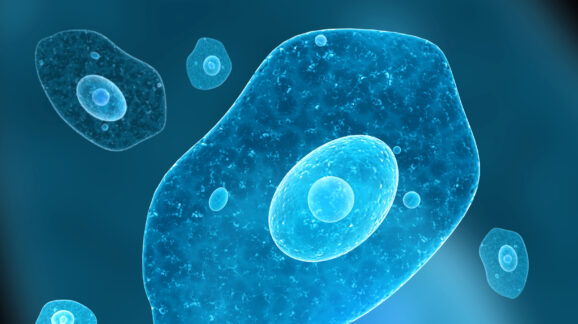Life is made of trade

Photo Credit: Getty
If I hadn’t become an economist, I might have found happiness as an evolutionary biologist. The two ways of thinking have a lot in common. Evolution is design without a designer; so are markets and other spontaneous orders.
Over at Liberty Fund’s EconLog blog, I show how trade is one of evolution’s driving forces. Life as we know it is literally made of trade.
Cell organelles used to be independent organisms, for example. They banded together in trading relationships, forming the first eukaryotic (with nucleus) cells.
These early entrepreneurs had comparative advantages, like producing energy or providing propulsion. Some of these specialists banded together as a survival tactic. If an energy-producing proto-mitochondria could give up some of its energy in exchange for a proto-flagellum’s help in escaping predators, both benefitted. Both survived, and both reproduced.
Trade operates at other levels, too:
Eventually, single-celled eukaryotes discovered a whole new level of trade. Just as organelles benefited by trading with each other inside one cell, so can entire cells benefit from trading with other entire cells. This is how multicellular organisms emerged.
In a way, this was the first international trade, between different groups of organisms.
Some of these cell groups discovered their own trading relationships; this is how organs evolved, enabling plants and animals to evolve. Human trade is that same specialize-and-exchange concept, just working on a global scale.
Every single one of us is a participant in an amazing, beautiful process that spans the world.
People often complain about a lack of wonder. We shouldn’t. We are made of wonder, and it’s all thanks to trade:
It is amazing to think that all these levels of trade are operating simultaneously. Every cell in your body, right now, two trillion of them, is engaging in internal trade among their organelles. Each of these cells is part of an organ or body part that is itself a specialist.
All of these specialists work together to form an individual person with a single consciousness and free will. This person in turn specializes in certain tasks, such as writing essays about trade, which it then exchanges with specialists in other areas.
Biological evolution and social evolution are tightly intertwined in what might be the world’s most intricate dance. It is all made possible by trade, from the microscopic level to the global level. Trade doesn’t just make possible modern prosperity. It makes possible life as we know it.
CEI’s approach to trade policy is rooted in first principles such as economic freedom, property rights, and the separation of powers. Evolutionary biology gives an even deeper perspective on the real first principles of trade.
Read the whole thing here. See also Kent Lassman, Iain Murray’s, and my new paper released earlier this week, Trade Under Blockade.